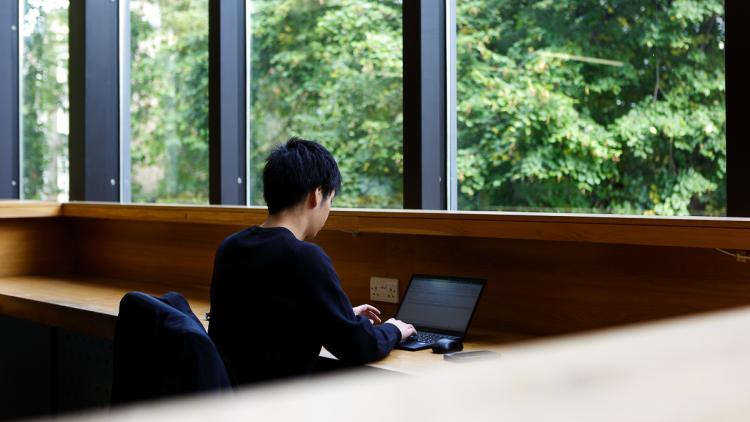Common Core II: Technology-Enhanced Research

Key information
- Start date
- End date
- Year of study
- Year 1
- Duration
- Term 2
- Module code
- 15DOCC002
- FHEQ Level
- 7
- Credits
- 30
- Department
- Doctoral School
Module overview
This module aims to help all SOAS PhD students across the institution develop the necessary knowledge and skills for conducting high-quality research in the digital age. Students will work collectively and individually through ten key topics of engaging with digital tools and sources, laying a strong foundation for their theses and research careers. This is an optional module, unlike Common Core I, but students who complete both Common Core I and II successfully will be eligible for a Postgraduate Certificate in case they withdraw from the PhD programme.
The module will be delivered in a blended mode. Full content will be housed and accessible on BLE in order to accommodate the extremely diverse backgrounds and working patterns of PGR students. Each topic (listed in the syllabus below) will be covered through a triad of a Unit Description , Resources , and Activities . These online resources and activities will be accompanied and enhanced by a series of regular offline sessions.
In order to pass the module and obtain its 30 credits, students will need to complete all online activities whereas offline attendance will be optional.
Objectives and learning outcomes of the module
On successful completion of this module a student will be able to:
- Understand the impact of digital technology on research
- Evaluate digitally sourced information
- Assess the strengths and weaknesses of two or more digital tools and determine which is the most suitable for their own inquiries
- Critically review digital methods used by other researchers
- Develop their own research presence online
- Apply good data management practices in their research
Workload
The module will consist of both offline classes and online provision. Students will generally have 2 hours of classes/workshops a week and 6 hours of online provision.
The offline classes' hours will be replaced by independent study hours for students not based at SOAS.
Scope and syllabus
- Being a researcher in the age of ‘big data’ and algorithms
- Evaluating digitally sourced information
- Choosing suitable tools for data collection
- Choosing suitable tools for data visualisation
- Scraping data from the web
- Ethnographic research in a digital world
- Computer-assisted qualitative data analysis (CAQDAS)
- Evaluating digital methods used in publications
- Building and managing an online research presence
- Good cybersecurity practices for researchers
Method of assessment
- Participation in all interactive exercises on the Bloomsbury Learning Environment (20%)
- Two written assignments on methodology (1,500 and 3,000 words weighed at 30% and 50% respectively)
Suggested reading
- Carrigan, M. (2016). Social Media for Academics. London: SAGE
- Lupton, D., Mewburn, I. & Thomson, P. (eds.) (2018). The Digital Academic: Critical Perspectives on Digital Technologies in Higher Education. London: Routledge
- Pink, S., Horst, H., Postill, J., Hjorth, L., Lewis, T. & Tacchi, J. (2016). Digital Ethnography: Principles and Practice. London: SAGE
- Woolf, N. H. & Silver, C. (2018). Qualitative Analysis Using NVivo: The Five-Level QDA Method. Oxon: Routledge
- Zimmer, M. & Kinder-Kurlanda, K. (eds.). (2017). Internet Research Ethics for the Social Age: New Challenges, Cases, and Contexts. New York: Peter Lang.
Disclaimer
Important notice regarding changes to programmes and modules


